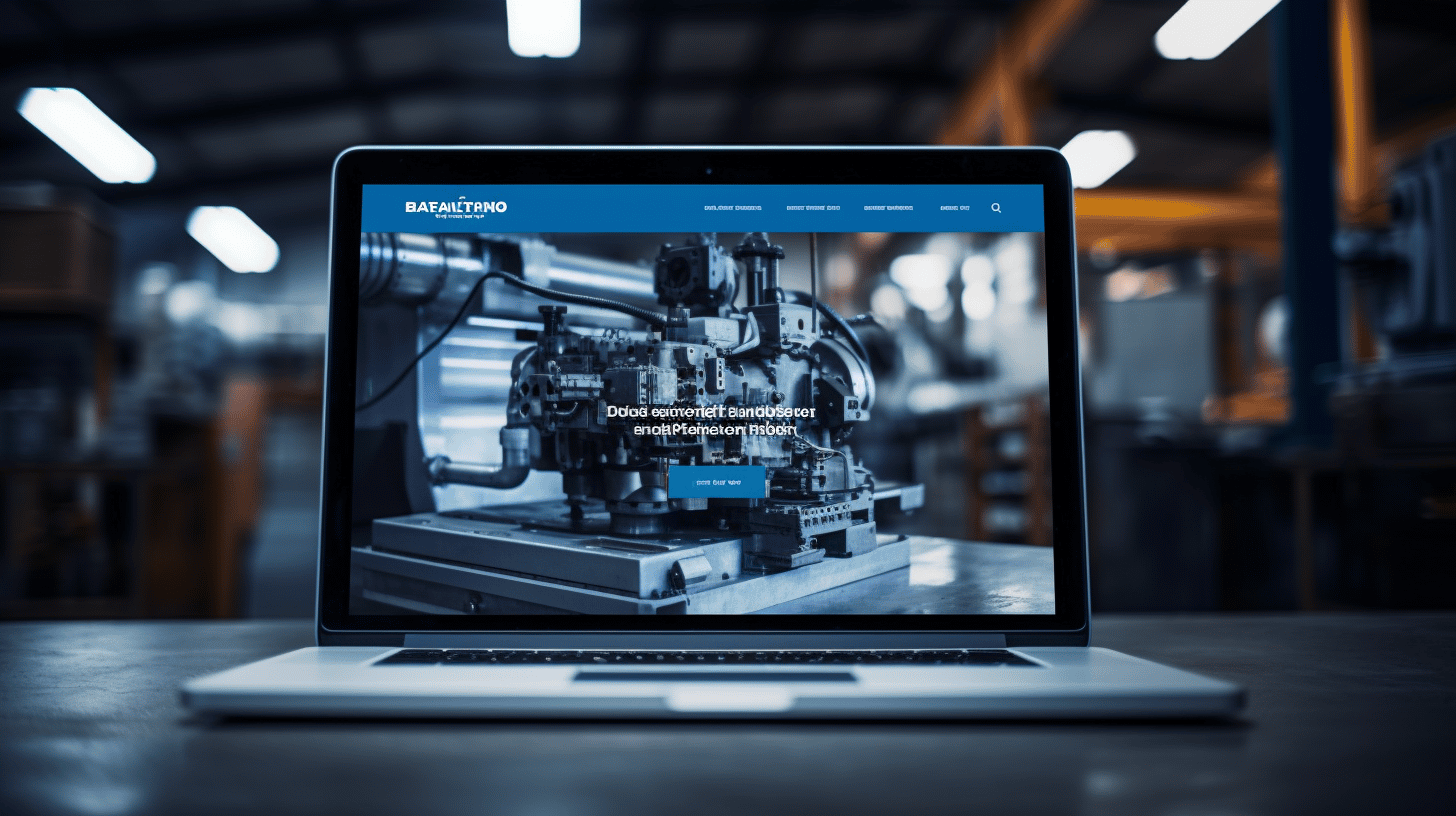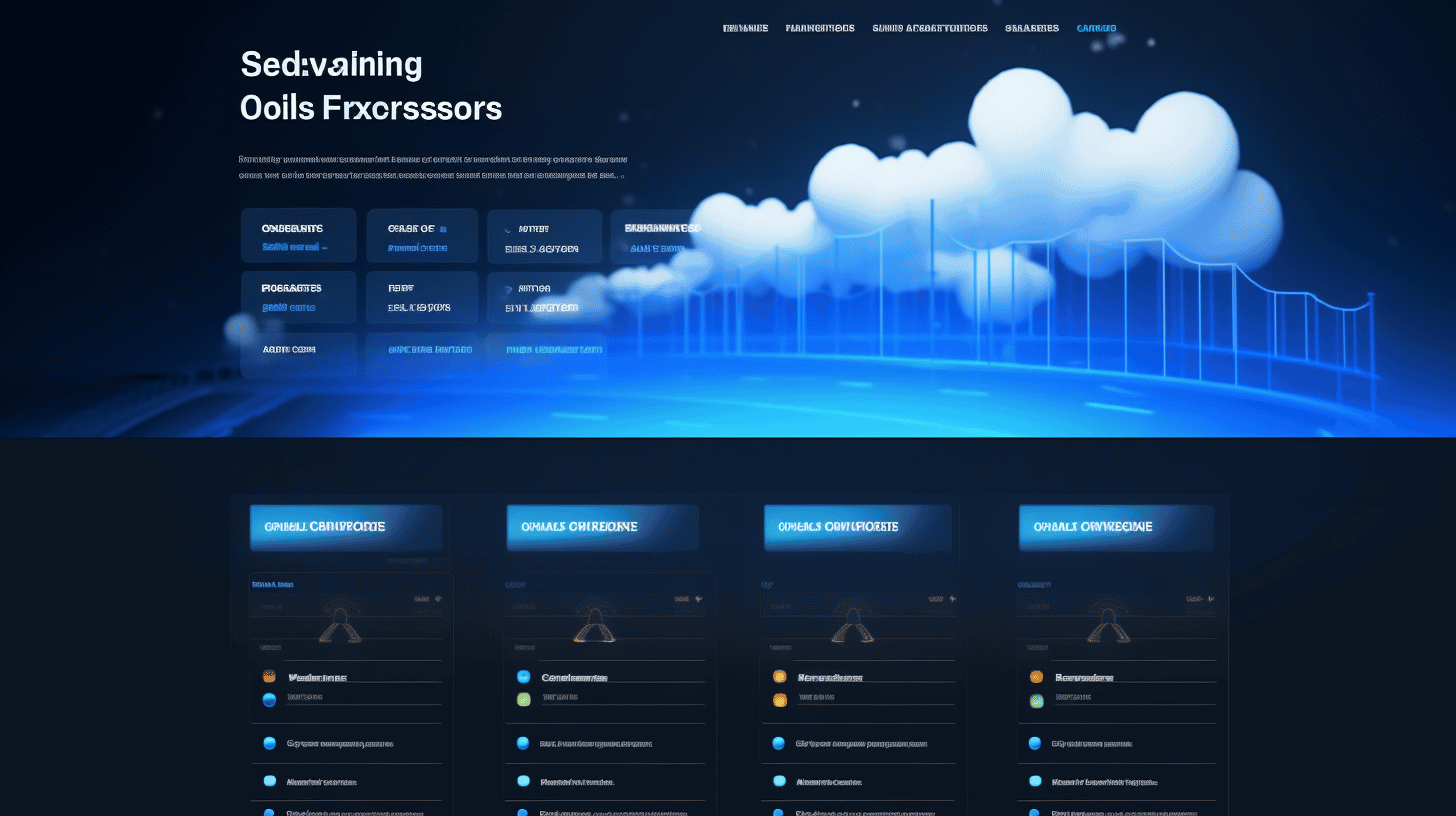In today’s fast-paced digital world, having a high-performing website is of utmost importance. With millions of websites vying for attention, it’s crucial to optimize your website to stand out from the competition. One platform that has gained immense popularity is WordPress. Known for its user-friendly interface and vast customization options, WordPress powers approximately 40% of all websites on the internet.
In this article, we will explore the significance of website speed and how it impacts user experience and ultimately, the success of your online business. We will also delve into the factors that affect website speed on WordPress and discuss effective strategies to improve website performance. Whether you’re a seasoned WordPress user or just getting started, this article will provide you with actionable insights to boost your website’s performance and provide a seamless browsing experience for your visitors. So, let’s dive in! 💻💨
The Significance of Website Speed
In today’s fast-paced digital era, where attention spans are shrinking by the second, website speed plays a crucial role in the success of any online venture. Slow-loading websites not only frustrate users but also have a significant impact on a business’s bottom line. In this section, we will explore the ramifications of slow-loading websites, from user abandonment to the influence it has on purchasing decisions.
An Abandonment of Slow-Loading Websites
Imagine this scenario: you stumble upon an enticing website that promises to offer the exact products or information you’re looking for. Excited to explore further, you click on the link, eagerly waiting for the page to load. But as seconds turn into eternity, your excitement fades away, replaced by impatience. Frustrated, you hit the back button and move on to a competitor’s site, leaving the slow-loading website behind.
This scenario is not uncommon in today’s hyperconnected world. Studies have shown that around 40% of people abandon a website that takes more than three seconds to load. Yes, you read that right. Three seconds. In this incredibly fast-paced digital landscape, every second counts. Users have become accustomed to instant gratification, and if a website fails to deliver, they won’t hesitate to go elsewhere.
But why does it matter if a few users abandon a slow-loading website? The answer lies in the potential revenue loss. Those users who leave in frustration could have been potential customers, engaged visitors who could have made a purchase, filled out a lead form, or signed up for a newsletter. By failing to meet their expectations and deliver a fast-loading page, businesses miss out on valuable opportunities to convert leads into loyal customers.
Impact on Purchasing Decisions
The influence of website speed doesn’t stop at user abandonment. It goes even further, affecting the purchasing decisions of approximately 82% of consumers. When faced with a slow-loading website, users tend to lose trust in the brand and perceive it as less credible and professional. This loss of trust directly impacts their likelihood of making a purchase.
Think about it: if you were faced with two websites offering the same product at the same price, but one loaded lightning-fast while the other took ages to load, which one would you choose? Most people would opt for the faster-loading website, associating it with a better user experience and a higher level of reliability.
Moreover, slow-loading websites can also impact search engine rankings. Search engines like Google take into account website speed as a ranking factor, meaning that slow-loading websites are less likely to appear in top search results. This can significantly affect a business’s online visibility and organic traffic.
To ensure your website’s success in this fast-paced digital landscape, it’s crucial to prioritize website speed. By optimizing your website’s performance and streamlining your WordPress web development workflow, you can provide users with a seamless browsing experience and increase the chances of converting leads into loyal customers.
Remember, in the online world, every second matters. Don’t let a slow-loading website be the reason you lose out on valuable opportunities. Streamline your WordPress web development process using tools and techniques that prioritize website speed.
Factors Affecting Website Speed
Introduction:
In today’s fast-paced digital world, speed is everything. When it comes to websites, speed plays a crucial role in both user experience and search engine optimization (SEO). A slow-loading website can frustrate visitors, leading them to abandon your site and potentially take their business elsewhere. Moreover, search engines like Google prioritize fast-loading pages, which can impact your site’s visibility and ranking. So, what are the factors that can affect your website speed? Let’s take a closer look.
Unused WordPress plugins
One common culprit behind sluggish website performance is the presence of unused WordPress plugins. These plugins can clutter your website’s code and consume valuable server resources, leading to slower load times. It’s essential to regularly audit your installed plugins and delete any that are no longer needed. By doing so, you can improve the speed of your website and optimize its performance for users.
🔗 Recommended WordPress Plugins: Recommended WordPress Plugins
Unoptimized images
Images are an integral part of website design, but if they are not properly optimized, they can significantly impact your site’s loading speed. Large image files can take longer to load, causing delays for visitors. To improve website performance, it’s essential to optimize images by reducing their file sizes without compromising on visual quality. This can be achieved through compression techniques or using image optimization plugins. By optimizing your images, you can ensure a faster and more efficient browsing experience for your users.
Website hosting
The choice of website hosting provider can greatly influence the speed and performance of your site. A reliable hosting provider with robust infrastructure and optimized server configurations can result in faster loading times. On the other hand, a subpar hosting provider with limited resources or overcrowded servers can lead to slow website performance. It’s important to choose a hosting provider that aligns with your website’s requirements and offers reliable and scalable hosting solutions.
WordPress theme quality
The quality of your WordPress theme also plays a role in website speed. Poorly coded or bloated themes can slow down your site by adding unnecessary code or functionality. It’s advisable to choose a lightweight, well-optimized theme that follows best practices for clean and efficient coding. Additionally, regularly updating your theme to the latest version can ensure compatibility with the latest WordPress updates and security patches, which can contribute to improved website speed and performance.
Additional Information:
- Deleting unused WordPress plugins can improve the speed of your website.
- Optimizing images and reducing their file sizes can significantly improve website performance.
- Using a reliable hosting provider and choosing a high-quality WordPress theme can optimize website performance.
Effective Strategies to Improve Website Performance
When it comes to website performance, there are several factors to consider in order to ensure that your site is running at optimal speed and efficiency. Two effective strategies that can greatly improve website performance are caching techniques and regular updates.
Caching techniques
Caching plays a crucial role in improving website performance. Essentially, caching allows the website to store static versions of its pages, reducing the time it takes to load them when accessed by visitors. This can significantly enhance the user experience and make your website feel more responsive.
There are several caching techniques that you can implement on your website, including:
- Browser cache: This type of caching instructs the visitor’s web browser to temporarily store certain files from your website, such as images or CSS stylesheets. This means that when the visitor returns to your website, the browser can load these files from their local cache instead of requesting them from the server again, resulting in faster load times.
- Content Delivery Network (CDN): A CDN is a network of servers located in various geographic locations. When you use a CDN, your website’s static files (such as images, CSS, and JavaScript) are stored on these servers and delivered to visitors from the server that is closest to their physical location. This reduces the distance that data needs to travel, resulting in faster load times.
- Server-side caching: Server-side caching involves storing complete HTML pages in the server’s cache. When a visitor requests a page, the server can serve it directly from the cache, reducing the processing time required to generate the page.
By implementing caching techniques on your website, you can dramatically improve its performance and provide a better user experience for your visitors.
Regular updates
Regularly updating your website’s plugins, themes, and the WordPress version itself is not only important for maintaining website security but also for enhancing its performance. Updates often include bug fixes, performance optimizations, and new features that can positively impact your website’s speed and efficiency.
Here are some reasons why regular updates are crucial for website performance:
- Security: Outdated plugins, themes, and WordPress versions can have vulnerabilities that hackers can exploit. By keeping everything up-to-date, you ensure that your website is protected from potential security threats.
- Bug fixes: Updates often address bugs and performance issues that may be present in older versions. By installing updates, you can resolve these issues and improve your website’s overall performance.
- Optimizations: Updates sometimes come with performance optimizations that can enhance the speed and efficiency of your website. These optimizations can include code improvements, database optimizations, and other optimizations specific to plugins or themes.
Regularly updating your website’s components is a simple yet effective strategy to not only improve performance but also ensure the security and stability of your website.
In conclusion, implementing caching techniques and regularly updating your website are two effective strategies to improve its performance. By optimizing the way your website handles and delivers content and keeping everything up-to-date, you can provide a faster, more reliable, and more enjoyable experience for your visitors. So, make sure to incorporate these strategies into your website optimization efforts.
To learn more about other effective strategies to improve website performance, check out Improve Website Performance Strategies.
The Market Dominance of WordPress
WordPress, the popular content management system (CMS), has achieved remarkable dominance in the website market. With a website market share of 43% and powering 38% of the top 10,000 websites, it’s clear that WordPress has become the go-to platform for individuals and businesses alike when it comes to building their online presence. But what makes WordPress stand head and shoulders above the rest? Let’s dive in and explore the factors contributing to its market dominance.
Ease of Use and Flexibility
One of the key reasons behind WordPress’s market dominance is its ease of use and flexibility. Whether you’re a seasoned developer or a beginner with limited technical knowledge, WordPress provides a user-friendly interface that allows anyone to create and manage their website effortlessly. The platform offers a wide range of themes and plugins, empowering users to customize their websites according to their specific needs and preferences. From personal blogs to corporate websites, WordPress can adapt to any industry or niche.
Extensive Plugin Ecosystem
WordPress’s plugin ecosystem is another decisive factor in its market dominance. With over 58,000 plugins available in the official WordPress Plugin Directory, users have access to an array of functionalities and features that can enhance their websites. From SEO optimization to social media integration, e-commerce solutions to performance optimization, the plugin repository offers a solution for almost every requirement. This extensive plugin ecosystem provides users with endless possibilities to expand their website’s capabilities, all with just a few clicks.
Community Support and Documentation
A thriving and supportive community is often the backbone of any successful platform, and WordPress is no exception. The WordPress community consists of developers, designers, bloggers, and users who actively contribute to the growth and improvement of the platform. This sense of community fosters collaboration, knowledge sharing, and support, making it easier for users to find answers to their questions and overcome challenges. With numerous online forums, documentation, tutorials, and meetups, users can tap into a wealth of resources to enhance their WordPress experience.
Search Engine Optimization (SEO) Friendliness
In the competitive online landscape, having a website that is search engine optimized is crucial for visibility and organic traffic. WordPress understands this need and offers a range of built-in SEO features, as well as numerous plugins dedicated to enhancing website SEO. From optimizing meta tags and images to generating XML sitemaps and integrating with popular SEO tools, WordPress provides the necessary tools to help users improve their website’s visibility in search engine rankings.
With its ease of use, flexibility, extensive plugin ecosystem, and strong community support, it’s no wonder that WordPress has secured its dominant position in the website market. Whether you’re a hobbyist blogger, a small business owner, or a large enterprise, WordPress offers the tools and features to support your online endeavors. So why wait? Join the millions of users who have already embraced WordPress and experience the power and versatility of this leading CMS.
🌟 Fun Fact: Did you know that some of the world’s most notable websites, including The New York Times, Sony Music, and TechCrunch, rely on WordPress? Its robustness and scalability make it a trusted choice for both small and large-scale websites.
Conclusion
In today’s fast-paced digital landscape, website performance is more crucial than ever before. Slow-loading websites not only lead to user frustration and an increased likelihood of abandonment but also have a significant impact on purchasing decisions. Users expect websites to load quickly and seamlessly, and if they don’t, they will quickly move on to a competitor’s site. To stay ahead of the game and ensure a smooth user experience, it’s essential to address the factors that affect website speed.
By optimizing your WordPress website, you can significantly enhance its performance and provide a better user experience for your visitors. Implementing smart automation strategies such as caching techniques and regularly updating your site will go a long way in speeding up your website. Additionally, being mindful of unused plugins, unoptimized images, website hosting, and the quality of your WordPress theme will further optimize your site’s performance.
WordPress’s market dominance makes it the go-to platform for website owners, developers, and businesses alike. With its extensive range of customizable themes, plugins, and user-friendly interface, WordPress offers unparalleled flexibility and scalability. However, it’s crucial to invest in a reliable managed WordPress cloud hosting platform that can simplify infrastructure, offer freedom in digital experiences, and provide expert support and proactive monitoring.
Managed-WP™ is an excellent solution for those looking to optimize their WordPress website. With their premium managed WordPress cloud hosting, they offer all the necessary tools to enhance website performance. From 24/7/365 WordPress support to backup management and patch management, Managed-WP™ ensures that your website is always running smoothly and efficiently.
Don’t let a slow website hinder your success. Invest in smart automation strategies and reliable managed WordPress hosting to boost your website’s performance and provide an exceptional user experience. With Managed-WP™, you can focus on what matters most – growing your business and engaging your audience. Start optimizing your WordPress website today with Managed-WP™. [1](https://managed-wp.com)
Frequently Asked Questions
- What are some smart automation strategies to boost website performance on WordPress?
Some smart automation strategies to boost website performance on WordPress include: optimizing images and files, using caching plugins, minifying CSS and JavaScript, enabling lazy loading, setting up a content delivery network (CDN), and scheduling automatic backups.
- Why is website performance important for SEO?
Website performance is crucial for SEO because search engines prioritize fast-loading websites. A slow website can lead to higher bounce rates, lower search engine rankings, and diminished user experience, negatively impacting your website’s overall visibility and traffic.
- What caching plugins are recommended for WordPress?
Some popular caching plugins for WordPress are WP Rocket, W3 Total Cache, and WP Super Cache. These plugins help improve website speed and performance by creating static HTML files and reducing server load.
- What is lazy loading and why is it beneficial?
Lazy loading is a technique that defers the loading of non-visible images and videos until the user scrolls to view them. It improves website performance by reducing initial loading time, saving bandwidth, and improving user experience, especially on pages with multiple media elements.
- How can I set up a content delivery network (CDN) on WordPress?
To set up a CDN on WordPress, you can use CDN services like Cloudflare, StackPath, or MaxCDN. These services distribute website files to multiple servers worldwide, reducing server response time and improving page load speed for visitors from different geographical locations.



















